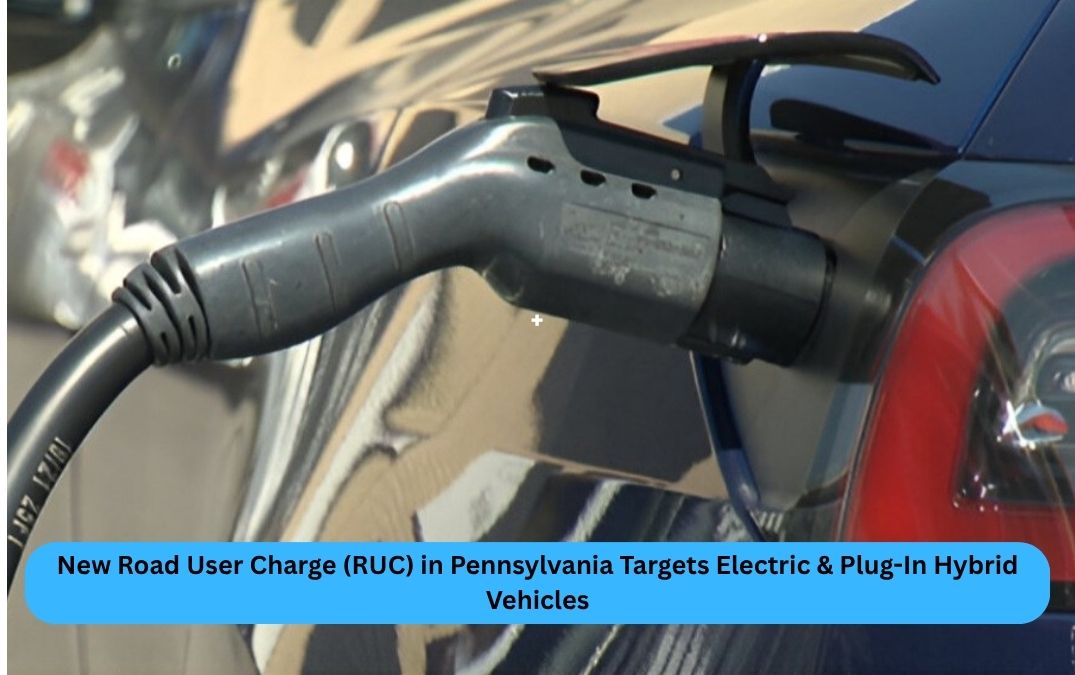Pennsylvania has introduced a new annual Road User Charge (RUC) for owners of electric vehicles (EVs) and plug-in hybrid vehicles (PHEVs) as part of an effort to fund road and bridge maintenance. This new fee, which began on April 1, 2025, aims to ensure all drivers contribute to maintaining the state’s transportation infrastructure, even as EVs and PHEVs reduce the state’s reliance on gasoline taxes.
What Is the Road User Charge (RUC)?
The RUC was established through Act 85 and amended by Act 149 in 2024. It was implemented due to the decline in gas tax revenue, a result of the growing number of EVs and PHEVs on the road. Traditionally, Pennsylvania’s transportation system was funded through gasoline taxes, but these vehicles use little to no gasoline, reducing their contribution to the state’s Motor License Fund.
New Fee Structure and Implementation
As of 2025, Pennsylvania will charge $200 annually for EVs and $50 for PHEVs. These amounts will rise in 2026 to $250 for EVs and $63 for PHEVs. In future years, the fees will be adjusted according to the Consumer Price Index (CPI).
Vehicle owners will be required to pay this annual fee when their vehicle registration expires after May 2025. PennDOT will send notices to affected owners, who will need to submit payment by check or money order within 30 days of receiving the notice. The RUC payment must be made before owners can renew their vehicle registration.
Online Payment System Coming Soon
PennDOT is working on an online payment system for the RUC, expected to launch by August 2025. This move aims to simplify the process for EV and PHEV owners by eliminating the need to track electricity usage or calculate complex taxes.
Replacing the Alternative Fuels Tax
This new RUC replaces the previous Alternative Fuels Tax for electric and plug-in hybrid vehicles with a gross vehicle weight rating of 14,000 pounds or less. The change aims to streamline the fee collection process while maintaining funding for Pennsylvania’s infrastructure needs.
Exemptions to the New Fee
Not all electric and plug-in hybrid vehicles are subject to the new charge. Exemptions include golf carts, electric motorcycles, vehicles manufactured in 1990 or earlier, and certain government vehicles.
Why the Change?
The new fee comes at a time when Pennsylvania is facing a projected $250 million shortfall in gas tax revenue in 2024 compared to pre-pandemic levels. This decline is attributed to several factors, including better fuel efficiency, fewer commutes due to remote work, and a decrease in overall vehicle ownership. According to the U.S. Environmental Protection Agency, the average fuel efficiency of vehicles has improved from just under 25 miles per gallon in 2019 to 29 mpg in 2024. Additionally, the number of registered passenger vehicles in Pennsylvania dropped to 7.8 million in 2023, the lowest since 2010.
Final Thoughts
This new RUC is a response to the changing landscape of transportation and funding in Pennsylvania. As more electric and hybrid vehicles hit the road, these changes ensure that all drivers contribute fairly to the maintenance of vital transportation infrastructure. Vehicle owners should stay informed on the new fee structure and the upcoming online payment system to ensure compliance.












